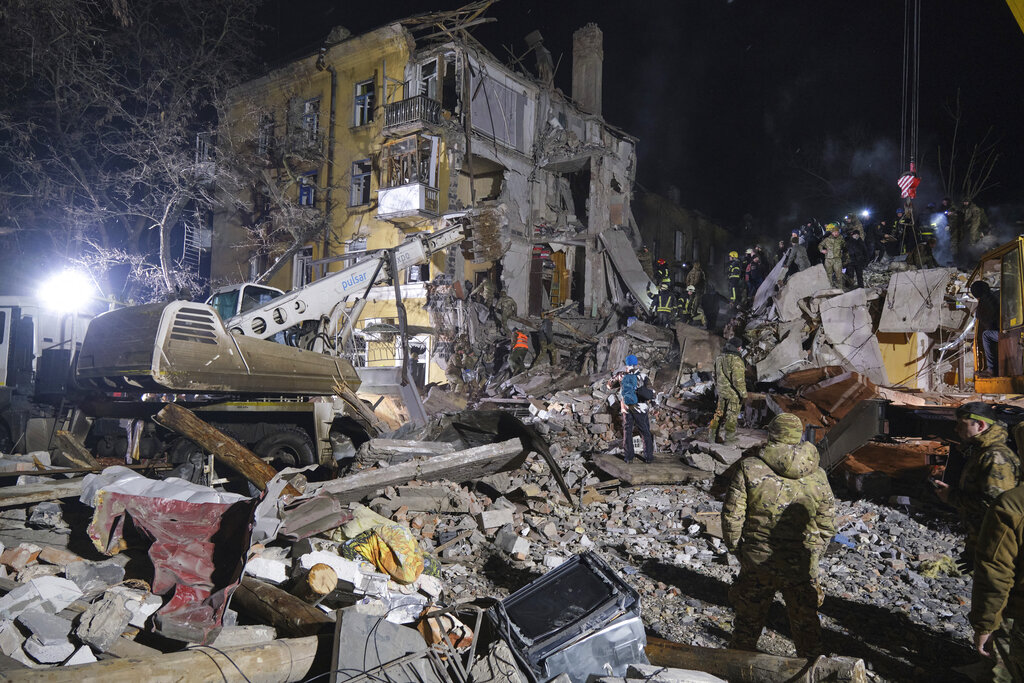A Ukrainian victory becomes less likely every day. Kyiv’s army is running out of men and materials, while the enemy is adjusting better and has huge supplies at its disposal. No wonder Western diplomats are now increasingly talking about ceasefires.
At the beginning of the year, Ukraine was spreading optimism about the terrible war that has been imposed on the country by Russian aggression for almost a year now. This year will bring “joy and victory,” declared the head of military intelligence, Kyrylo Budanov. But how realistic is a Ukrainian victory?
It is almost impossible that Ukraine will emerge victorious from this war. According to Ukrainian President Volodymyr Zelensky’s definition, a victory means the reconquest of all occupied territories, including Crimea. But that is impossible from today’s perspective and under the given circumstances, by which is meant, above all, the lack of support from the West. Russia currently occupies about 18 percent of Ukrainian territory. Unfortunately, this figure is likely to rise rather than fall in the future.
What are the reasons for Russia’s foreseeable success?
First, in the debates of recent weeks, it has become definitively clear that the U.S., Germany, and other NATO allies are more afraid of the war spreading to NATO territory than of the threat to Western security posed by Russia’s territorial conquests in Ukraine. The logic of Western decision-makers is that the more combat-ready, lethal, and precise weapons deliveries become, the greater the risk of a “spillover” effect. The West suffers from a kind of self-deterrence and therefore supports Ukraine only in such a way that it does not have to capitulate immediately.
Second, Russia has so far destroyed 60 to 70 percent of the critical infrastructure in Ukraine. There is no prospect of Kyiv receiving sufficient air defense systems from the West, such as Iris-T, Nasams, and Patriots, to stop the Russian destruction. On the contrary, the puny deliveries from the West mean nothing to Russian forces, which still have huge arsenals of missiles and drones, according to General Staff Eirik Kristoffersen, head of the Norwegian Armed Forces.
However, Ukraine will be increasingly less able to repair the destroyed infrastructure — the material for this is becoming scarce and would have to be supplied from Russia. Without sufficient energy, however, it will also become increasingly difficult to supply the people necessary. In addition, the Ukrainian defense industry urgently needs electricity.
Third, Russia’s military is trying to counter Western precision weapons and can draw on sufficient resources to do so. This is especially true in the tank division. According to the London-based think tank, the International Institute for Strategic Studies (IISS), Russia should soon have more than 4,000 deployable tanks at its disposal — a crushing mass that not only poses a major risk to Western Leopard tanks, but also puts Russia in a position to go on the offensive at any time.
Fourth, Ukraine is running out of soldiers as the war drags on. It is already — depending on how you look at it — in at least its eighth wave of mobilization, with men over the age of 60 now being sent to the front. Russia, on the other hand, will soon have 200,000 fresh forces, with some reports suggesting up to 500,000 more soldiers could follow in the summer. Moscow has a mobilization potential of about 30 million.
Fifth, Russia is likely to emerge from this war not only as a military victor with territorial gains for the reasons mentioned above, but also as a political victor. According to the Vienna Institute for International Economic Studies (WIIW), Ukraine’s economic recovery will be significantly more difficult than the National Council for the Reconstruction of Ukraine predicts. Membership of NATO is likely to be ruled out for the foreseeable future following a ceasefire or peace negotiations, and Ukraine’s EU accession will, in the best-case scenario, take much longer than Kyiv is currently demanding.






